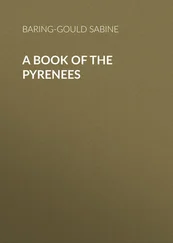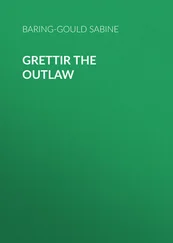Sabine Baring-Gould - Legends of the Patriarchs and Prophets
Здесь есть возможность читать онлайн «Sabine Baring-Gould - Legends of the Patriarchs and Prophets» — ознакомительный отрывок электронной книги совершенно бесплатно, а после прочтения отрывка купить полную версию. В некоторых случаях можно слушать аудио, скачать через торрент в формате fb2 и присутствует краткое содержание. Жанр: foreign_antique, foreign_prose, на английском языке. Описание произведения, (предисловие) а так же отзывы посетителей доступны на портале библиотеки ЛибКат.
- Название:Legends of the Patriarchs and Prophets
- Автор:
- Жанр:
- Год:неизвестен
- ISBN:нет данных
- Рейтинг книги:3 / 5. Голосов: 1
-
Избранное:Добавить в избранное
- Отзывы:
-
Ваша оценка:
- 60
- 1
- 2
- 3
- 4
- 5
Legends of the Patriarchs and Prophets: краткое содержание, описание и аннотация
Предлагаем к чтению аннотацию, описание, краткое содержание или предисловие (зависит от того, что написал сам автор книги «Legends of the Patriarchs and Prophets»). Если вы не нашли необходимую информацию о книге — напишите в комментариях, мы постараемся отыскать её.
Legends of the Patriarchs and Prophets — читать онлайн ознакомительный отрывок
Ниже представлен текст книги, разбитый по страницам. Система сохранения места последней прочитанной страницы, позволяет с удобством читать онлайн бесплатно книгу «Legends of the Patriarchs and Prophets», без необходимости каждый раз заново искать на чём Вы остановились. Поставьте закладку, и сможете в любой момент перейти на страницу, на которой закончили чтение.
Интервал:
Закладка:
This is simply the same story told over twice, and formed into a dynasty. Chronos Titan is the same as the Arabic Scheitan, the Erse Teitin, the Time-god, and the Biblical Satan, or Lucifer, the Son of the Morning.
Amongst the Battas of Sumatra exists a myth to this effect: Batara Guru, the supreme God, from whose daughter Putiarla Buran all mankind are descended, cast the mountain Bakkara out of heaven upon the head of the serpent, his foe, and made the home of his son Layanga-layaad-mandi on the top of this mountain. From this summit the son descended that he might bind the hands or feet of the serpent, as it shook its head and made the earth rock.
Connected with the fall of Satan is his lameness. The devil is represented in art and in legion as limping on one foot; this was occasioned by his having broken his leg in his fall.
Hephæstus, who pursued Athene and attempted to outrage divine Wisdom, was precipitated from heaven into the fire-island Lemnos, and was lamed thereby. Hermes cut the hamstring out of Typhon, therewith to string his lyre. The Norse god Loki lusted after Freya, and was lamed therefor. Wieland the smith (Völundr), who ventured to do violence to Beodohild, was lamed, and was known thereby. Phaethon, daring to drive his father’s chariot of the sun, was cast out and thrown to earth.
The natives of the Caroline Islands relate that one of the inferior gods, named Merogrog, was driven by the other gods out of heaven, and he took with him a spark of fire which he gave to men. 16 16 Lettres Edifiantes, viii. p. 420.
This myth resembles that of Prometheus, “the contriver, full of gall and bitterness, who sinned against the gods by bestowing their honors on creatures of a day, the thief of fire,” as Hermes calls him. He reappears as Tohil among the Quiches, the giver of fire, hated, yet adored.
The Northern Californians say that the supreme God once created invisible spirits, of whom one portion revolted against him, headed by a spirit named War or Touparan, and that the Great Spirit having overcome him, drove him from the plains of heaven, and confined him along with his comrades in a cavern, where he is guarded by whales. 17 17 Bibliothèque Univ. de Genève, 1827; D’Anselme, i. p. 228.
The Egyptian Typhon, already alluded to, did not belong to Egypt alone, but also to Phœnicia and Asia Minor, and thence the story passed into Greece, where it took root, and has been preserved to us as the attack of the hundred-headed dragon against the heaven-god Zeus. Typhon desired to obtain supremacy over gods and men, and, in order to win for himself this sovereignty, he fought against the gods; but he was defeated, bound, and precipitated into Tartarus, or, according to another version, was buried under the flaming mountains.
According to a tradition of the Salivas, a people of New Granada, a serpent slew the nations, descended from God, who inhabited the region of the Orinoco, but a son of the God Puru fought him and overcame him, and bade him depart with his curse, and never to enter his house again, and, say these Salivas, from the flesh of the serpent sprang the Caribees, their great foes, as maggots from putrid meat. 18 18 Hist. Naturelle de l’Orinoque, par Tos. Gumilla. Avignon, 1751, t. i. p. 172.
But these stories might be infinitely extended. How far they refer to a tradition common to the human race, and how far they relate to the strife between summer and winter, sun and storm-cloud, I do not pretend to decide. It is one of those vexed questions which it is impossible to determine.
II
ADAM
Certain of the angels having fallen, God made men, that they might take their vacated places.
According to the most authoritative Mussulman traditions, Adam was created on Friday afternoon at the Assr-hour, or about three o’clock. The four archangels – Gabriel, Michael, Israfiel, and Asrael – were required to bring earth from the four quarters of the world, that therefrom God might fashion man. His head and breast were made of clay from Mecca and Medina, from the spot where later were the Holy Kaaba and the tomb of Mohammed. Although still lifeless, his beauty amazed the angels who had flocked to the gates of Paradise. But Eblis, envious of the beauty of Adam’s as yet inanimate form, said to the angels: “How can you admire a creature made of earth? From such material nothing but fragility and feebleness can come.” However, most of the angels praised God for what he had done.
The body of Adam was so great, that if he stood up his head would reach into the seventh heaven. But he was not as yet endowed with a living soul. The soul had been made a thousand years before, and had been steeped all that while in the sea of light which flowed from Allah. God now ordered the soul to enter the body. It showed some indisposition to obey; thereupon God exclaimed: “Quicken Adam against your will, and, as a penalty for your disobedience, you shall leave the body sorely against your will.” Then God blew the spirit against Adam with such force that it entered his nose, and ran up into his head, and as soon as it reached his eyes Adam opened them, and saw the throne of God with the inscription upon it: “There is no God but God, and Mohammed is His prophet.” Then the soul ran into his ears, and Adam heard the song of the angels; thereupon his tongue was unloosed, for by this time the soul had reached it, and he said, “Praise be to Thee, my Creator, one and only!” And God answered him: “For this purpose are you made. You and your successors must pray to me, and you will find mercy and loving-kindness at my hands.” Then the soul penetrated all the members, reaching last of all the feet of Adam, which receiving strength, he sprang up, and stood upon the earth. But when he stood upright he was obliged to close his eyes, for the light of God’s throne shining directly into them blinded them. “What light is this?” he asked, as he covered his eyes with one hand, and indicated the throne with the other. “It is the light of a prophet,” God answered, “who will spring from thee in later ages. By mine honor I swear, for him alone have I created the world. In heaven he bears the name of the much lauded, and on earth he will be called Mohammed. Through him all men will be led out of error into the way of truth.”
God then called all created animals before Adam, and told him their names and their natures. Then He called up all the angels, and bade them bow before Adam, the man whom He had made. Israfiel obeyed first, and God gave to him in recompense the custody of the Book of Fate; the other angels obeyed in order; only Eblis refused, in the pride of his heart, saying, “Why shall I, who am made of fire, bend before him who is made of earth?” Therefore he was cast out of the angel choirs, and was forbidden admission through the gates of Paradise. Adam also was led out of Paradise, and he preached to the angels, who stood before him in ten thousand ranks, a sermon on the power, majesty, and goodness of God, and he showed such learning and knowledge – for he could name each beast in seventy languages – that the angels were amazed at his knowledge, which excelled their own. As a reward for having preached this sermon, God sent Adam a bunch of grapes out of Paradise by the hands of Gabriel. 19 19 Weil, Biblische Legenden der Muselmänner. Frankfort, 1845, pp. 12-16.
In the Midrash, the Rabbinical story is as follows: “When God wished to make man, He consulted with the angels, and said to them, We will make a man in our image. Then they said, What is man, that you regard him, and what is his nature? He answered, His knowledge excels yours. Then He placed all kinds of beasts before them, wild beasts and fowls of the air, and asked them their names, but they knew them not. And after Adam was made, He led them before him, and He asked Adam their names, and he replied at once, This is an ox, that is an ass, this is a horse, that is a camel, and so forth.” 20 20 Geiger, Was hat Mohammed aus d. Judenthum aufgenommen? p. 99.
Интервал:
Закладка:
Похожие книги на «Legends of the Patriarchs and Prophets»
Представляем Вашему вниманию похожие книги на «Legends of the Patriarchs and Prophets» списком для выбора. Мы отобрали схожую по названию и смыслу литературу в надежде предоставить читателям больше вариантов отыскать новые, интересные, ещё непрочитанные произведения.
Обсуждение, отзывы о книге «Legends of the Patriarchs and Prophets» и просто собственные мнения читателей. Оставьте ваши комментарии, напишите, что Вы думаете о произведении, его смысле или главных героях. Укажите что конкретно понравилось, а что нет, и почему Вы так считаете.












